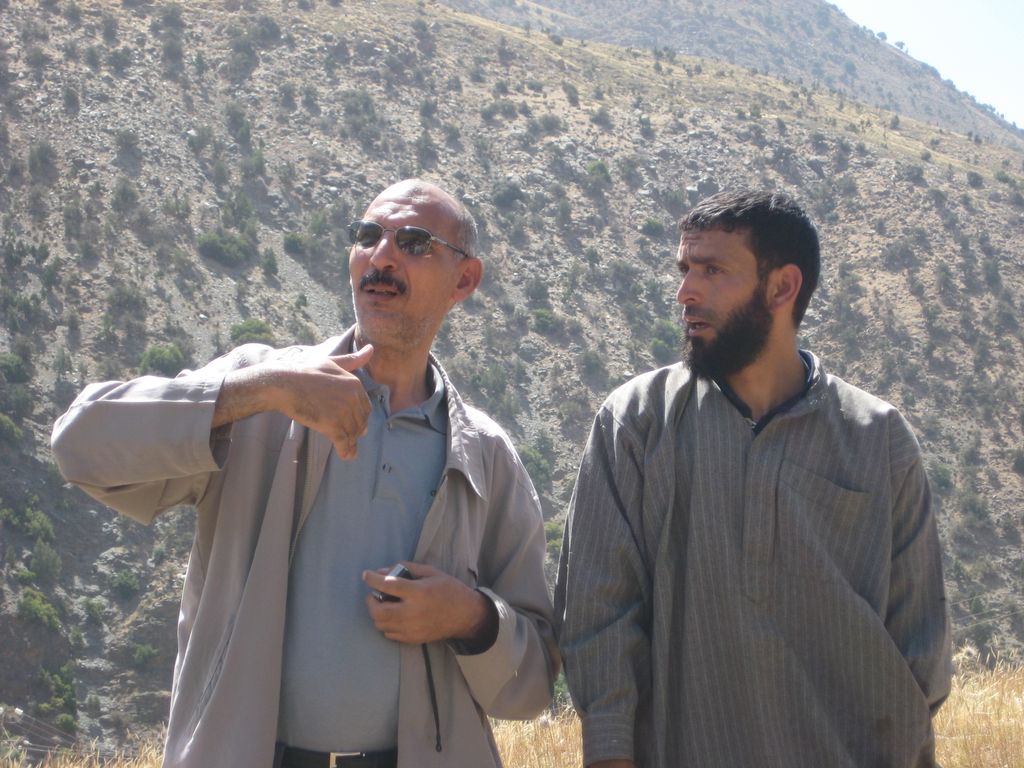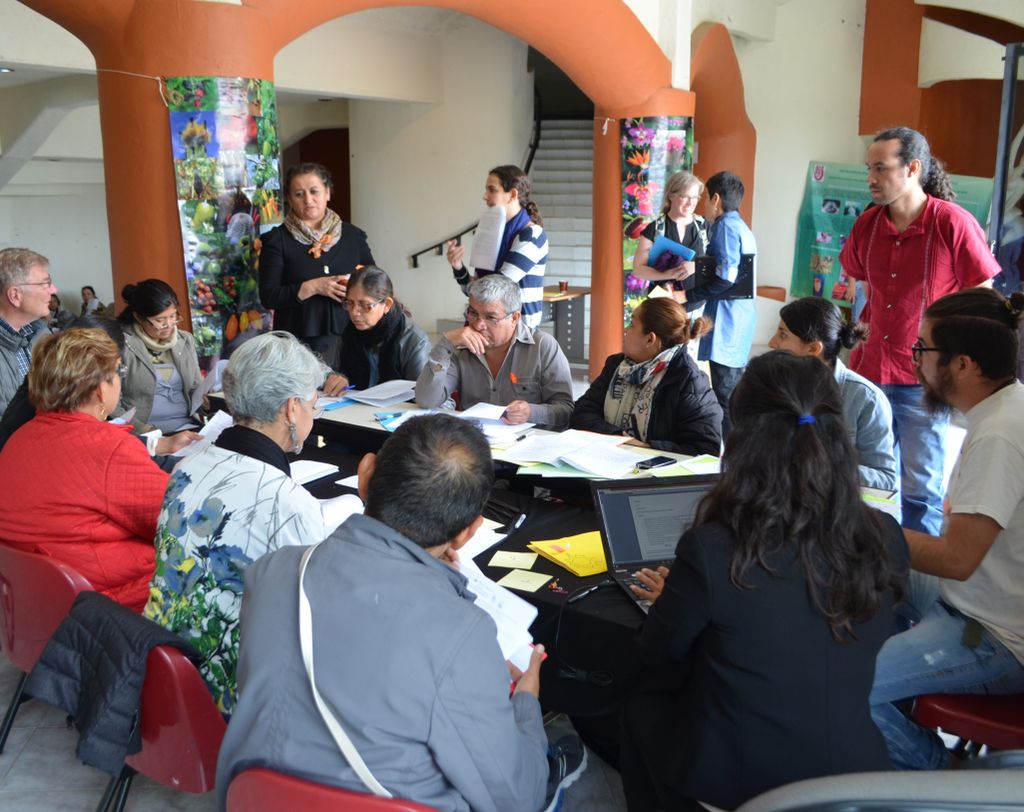Conducting Ethical Conservation Research

-
Region
Global -
Country
Morocco -
Topic
Policy and Advocacy -
Type
Case Study
The Global Diversity Foundation
Example provided by:
Teixidor-Toneu, I., Caruso, E., Rankou, H., D’Ambrosio, U., Martin, G.
The Global Diversity Foundation, Marrakech, Morocco
Through its regional programmes Global Diversity Foundation (GDF [1]) supports rural and indigenous communities as they seek to improve their livelihoods and wellbeing whilst respecting environmental processes and fostering biocultural diversity. It does so through in-depth, applied interdisciplinary research across the natural and social sciences. GDF’s research focuses on biodiversity (plant diversity, climate change impacts and conservation, amongst others) and ethnobotany (traditional ecological knowledge, cultural practices of conservation and sustainable land use practices, amongst others). Research outputs are used to promote agricultural, biological and cultural diversity. Since 2002, GDF has implemented a Regional Programme in the Mediterranean that currently focuses on Morocco, implementing projects in multiple sites in the High Atlas mountain range. In Morocco, GDF collaborates very closely with a local NGO called the Moroccan Biodiversity and Livelihoods Association (MBLA) which is staffed by Moroccan early-career professionals and academics.
GDF is committed to conducting ethical research and its members and collaborators closely follow international ethical guidelines for conducting research with local communities. An internal policy that covers ethics in fieldwork is currently being prepared. It highlights the guiding role of the International Society of Ethnobiology Code of Ethics (ISE 2006 and 2008 [2]), the American Anthropological Association Code of Ethics (AAA 2009 [3]), the Association of Social Anthropologists Ethical Guidelines (ASA 2009 [4]). Ethical guidelines have been included in GDF’s policy for interns [5] and the GDF-MBLA Morocco Programme Publications Policy [available upon request].
GDF and MBLA seek to abide by international and national legislation relating to ethical relationships with communities, recognising that work is still needed to have an operational legal framework, particularly at the national level. Although Morocco signed the Nagoya Protocol in December 2011, the latter has not yet been ratified. GDF allocates resources both to the study of the implementation of international agreements (CBD, GSPC, ITPGR) in Morocco and to the establishment of processes that can support or enhance such implementation. Resources are also dedicated to the study of key national laws related to the protection and use of biodiversity, for example n° 29-05, which came into effect in January 2016 (“relative to the protection of wild flora and fauna species and to the control of their commercialisation”). It also supports work that examines Morocco’s legal and political framework relating to Indigenous Peoples’ and Local Communities’ Conservation Areas and Territories (ICCAs). Such contributions are necessary and urgent when legal frameworks are in their infancy or not operational.
All research is carried out in collaboration with national and regional academic institutions and researchers operating in the social and the natural sciences, including, as mentioned above, the national NGO MBLA. Through a collaboration with the MARK regional herbarium which receives duplicates of all plants and seeds collected by the GDF and MBLA team, and facilitates export permits to international herbaria if and when necessary. Duplicates are also deposited in community-based herbaria that were established with GDF’s support. Deposition of duplicates in regional and local herbaria as well as shared co-authored publications are part of the Access and Benefit Sharing (ABS) strategy.
Given that a key objective of our work is livelihoods improvement, GDF contributes to the development of sustainable, community-based solutions to enhance income and well-being, including plant commercialisation [6,7]. Ethical considerations around Access and Benefit-sharing are essential in the context of plant commercialisation and GDF will develop ethical guidelines that address every stage of the commercialisation process.
A central part of GDF and MBLA’s ethical engagement with communities is to carry out research in collaboration with community members who participate, as much as possible, in the definition of research needs, design and implementation. Selected community members are employees of GDF and/or MBLA and have full-time jobs in the organisations, carrying out various activities as researchers. They are the primary data collectors and participate in regular workshops where research aims are discussed and methodology is designed collaboratively. Capacity building activities are part of all GDF and MBLA projects and combine hands-on training with more formal methods, usually during workshops organised in the communities. Members of the team include community liaison officers, who may not be from the communities where active work is carried out, but who are Amazigh from the region, and who facilitate communication and coordination between the organisations and community members.
Free, Prior and Informed Consent (FPIC) is an important element of the research process. GDF views informed consent as an on-going process rather than a one-time event; continuous communication with the community members and local authorities is key to projects’ success.
The approach to obtaining FPIC is multi-layered. It is sought from national and regional institutions through acquiring the appropriate permits and from local authorities and cooperatives through the participatory development of Memoranda of Understanding (MOUs), which define the scope of collaborations and what is expected of each party. Local authorities are informed in advance of who is involved in GDF and MBLA field research, of their dates of travel and of the content of their activities, including details such as the questions that will be asked. This has taken the form, for example, of having a local authority review questionnaires before they are used in community research. For video projects, an application for a filming permit is filed with the Moroccan Film Centre, and the agreed permit is shared with local authorities and participants as appropriate. Signed documents are essential when engaging with local authorities but are not used when seeking personal consent.
It is indispensable to obtain FPIC from individuals when they contribute with their knowledge and it is a mandatory prior step to conducting interviews. It is also important when botanical activities, such as collection, are conducted in private land or in community-managed areas (although in these cases, securing FPIC tends to be managed through local authorities through the medium of MOUs). Much of the middle-aged and elderly population living in the High Atlas is illiterate, and feels deeply uncomfortable signing documents. In these cases, oral agreement is sought. If no consent is granted, the proposed activity does not take place (whether it is an interview, or the collection of plants or seeds, for example).
If it is expected that results from ethnobotanical research are to be published, this is discussed during the FPIC process, together with issues of anonymity, privacy and confidentiality. In accordance with the interviewee’s preferences, names may or may not be recorded and codes may be used instead. If information is confidential, it is not recorded or used. However, this is almost never the case since practices related to biodiversity and knowledge surrounding livelihoods are mostly communally owned, widespread and public. During the FPIC process, interviewees are also consulted about the production of possible tangible outputs of the research that could be of interest to the community for example booklets, flyers, posters and videos [8].
RESOURCES
[1] GDF website
[2] International Society of Ethnobiology code of ethics (ISE 2006 and 2008)
[3] American Anthropological Association code of ethics (AAA 2009)
[4] Association of Social Anthropologists ethical guidelines (ASA 2009)
[5] Interns policy, Appendix 3: Guidance for fieldwork internships
[6] COBRA – How to find and share community owned solutions
[7] COMBIOSERVE – Co-enquiry and participatory research for community conservation: Methods manual
[8] Medicinal plant’s booklet
